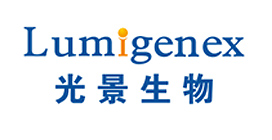
Products
This rapid test kit is intended for in vitro qualitative detection and differentiation of antibodies to Severe Acute Respiratory Syndrome Coronavirus 2 (SARS-CoV-2) in serum/plasma/whole blood samples (including venous blood and finger stick blood) specimens from patients suspected of Coronavirus Disease 2019 (COVID-19) infection. It is used as an aid in diagnosing symptomatic or asymptomatic individuals of acute infection together with molecular tests or clinical information. They also can identify individuals who have previously been infected with the SARS-CoV-2 virus and recovered.
Intended use
This rapid test kit is intended for in vitro qualitative detection and differentiation of antibodies to Severe Acute Respiratory Syndrome Coronavirus 2 (SARS-CoV-2) in serum/plasma/whole blood samples (including venous blood and finger stick blood) specimens from patients suspected of Coronavirus Disease 2019 (COVID-19) infection. It is used as an aid in diagnosing symptomatic or asymptomatic individuals of acute infection together with molecular tests or clinical information. They also can identify individuals who have previously been infected with the SARS-CoV-2 virus and recovered.
Product Information
|
Production name |
Test samples |
Specifications |
|
PocRoc®SSARS-CoV-2 IgG/IgM Rapid Test Kit (TFRIA) |
serum/plasma/whole blood samples |
1T/Kit, 10T/Kit, 20T/Kit |
Storage Conditions
All reagents are ready to use as supplied. Unopened reagent kits are stable at 4°C ~30°C for 12 months tentatively. It should be used within 1 hour once the pouch is opened. Do not freeze the kit or expose the kit above 37°C during storage.
Samples collection and test procedure
Treat any materials of human origin as infectious and handle them using standard biosafety procedures.
Whole blood
1. Collect blood specimen into a collection tube (venous blood containing EDTA, citrate or heparin ) by venipuncture.
2. Test specimen as soon as possible after collection within 2 hours. Store specimen at 2°C ~8°C if not tested immediately for no more than 2 days.
Finger stick blood
1. Preparation: Disposable micropipette and Lancet, 75% alcohol wet wipe.
2. Massage: gently massage the ring finger to make the local tissue naturally congested.
3. Disinfection: wipe with 75% alcohol wet wipe and leave it dry.
4. Acupuncture: make the skin tight with left hand, hold the Lancet in the right hand and stab it from the inside of the finger end abdomen, fast in and fast out.
5. Blood collecting: squeeze the handle of micropipette to take samples to fill the part of the front thinner end.
Serum/Plasma
1. Collect blood specimen into a red top collection tube (containing no anticoagulants) by venipuncture.
2. Allow the blood to clot.
3. Separate the serum/plasma by centrifugation.
4. Carefully withdraw the serum/plasma into a new pre-labeled tube.
5. Test specimen as soon as possible after collecting within 2 hours. Specimen can be stored at 2°C ~8°C up to 2 days or frozen -20 °C up to one month if not tested immediately. Avoid twice freeze-thaw cycles. Prior to testing, bring frozen specimen to room temperature slowly and mix
gently. Specimen containing visible particulate matter should be clarified by centrifugation before testing.
6. The assay is unaffected by icterus (bilirubin≤0.2g/L), hemolysis (hemoglobin≤5g/L), lipemia (triglyceride≤10 g/L) .
Assay Procedure
1、Please read the instructions for use of this product thoroughly before performing the test.
2、Take out the kit from outer packaging, place it horizontally on a clean table and mark it. (The kit should be used within 1 hour).
3、Take 5mL whole blood (finger stick blood can be used also), or 3.3mL serum/plasma, and add onto the center part of sample well of the cassette. Wait for 10 seconds before adding 75mL Sample Buffer (2 Drops) to the buffer well, and timing. When adding samples, the micropipettes tip must resist against the sample pad and make sure the sample completely enters the sample pad before adding the Sample Buffer.
4、After 10 minutes of reaction, the data can be read and printed out using TRFIA analyzer (For
detailed information refer to the operating instructions for TRFIA analyzer). A UV flashlight can also be used to illuminate the detection area. Qualitative result can be obtained according to the fluorescence intensity of the detection lines.
5、It is preferred to measure the signal with TRFIA analyzer, although it is also acceptable to read the result of fluorescence signals excited with a UV flashlight.
底部版权信息
Copyright©2021 Lumigenex (Suzhou) Co., Ltd. All Rights Reserved. Website construction: www.300.cn
